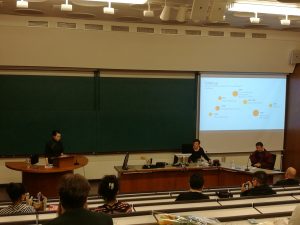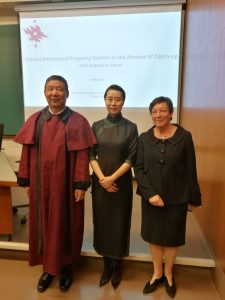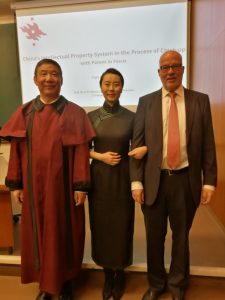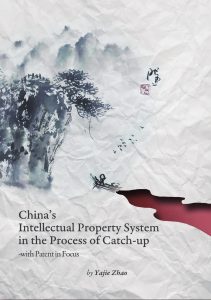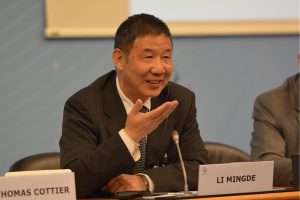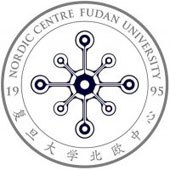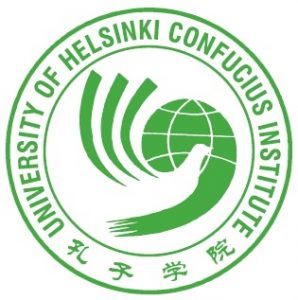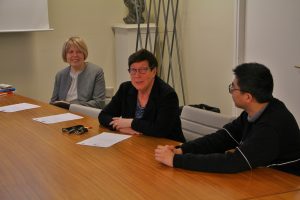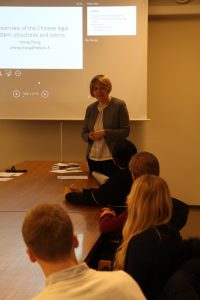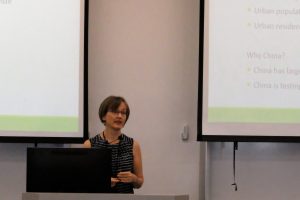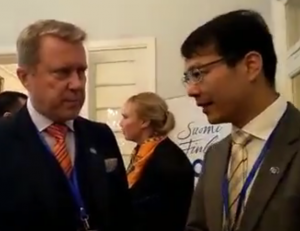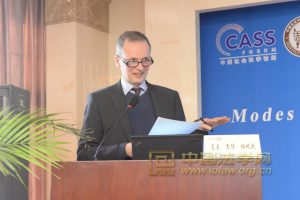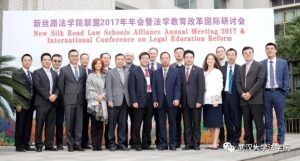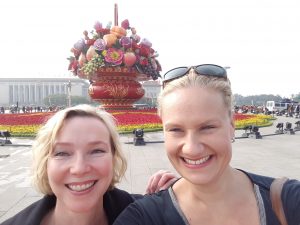To mark the end of Nordic China Law Week 2018 (17 – 23 April), on Monday 23 April, Aalto University and the Finnish China Law Center will host a half-day seminar:
‘What People Management Practices Work Best in China Today? Cultural and Legal Perspectives’
China is already the second largest country in the world in terms of GDP and thus it is increasingly becoming common for Finnish firms to work in and with China. As China is culturally different from Finland, many Finnish people find it challenging to understand what management practices work best in China.
As China’s economy continues to grow and diversify, new opportunities and challenges are emerging. In addition, legal considerations – including a range of Chinese labor laws based on international standards – affect how businesses operating in China manage their workforce.
This seminar, held during the 40th anniversary of China’s ‘Reform and Opening Up’ reforms, brings together academics from management and legal backgrounds, as well as one of Finland’s leading entrepreneurs, to provide interdisciplinary insights and explore developments in contemporary people management practices in China.
This free, public event is targeted at managers, practitioners, scholars, and students.
Details and Registration
Date: Monday 23 April 2018
Time: 13:00 – 17:00 (including refreshments and networking event).
Location: Aalto University School of Business, Room C-350 (Jenni and Antti Wihuri Hall), Runeberginkatu 14-16, Helsinki.
The organizers kindly ask you to register by 19 April 2018 via this link:
https://elomake.helsinki.fi/lomakkeet/87100/lomake.html
Program
13:00 Welcome to the Seminar: Professor Carl Fey, Aalto University School of Business
13:05 Fundamental Labour Rights and Corporate Social Responsibility in China: Professor Ulla Liukkunen, Director of the Finnish Center of Chinese Law, University of Helsinki
13:30 Changing HRM Practices in China: Implications for Practitioners and Researchers: Dr Wei Lu, Aalto University School of Business
13:55 The Relationship between Education, Business Culture and Employee Engagement in China: Peter Vesterbacka, Co-founder and BrandBreaker, Lightneer Inc
14:20 Tea/coffee break
14:35 What Types of Organizational Culture Work Best in China? Professor Carl F. Fey, Aalto University School of Business
15:00 Panel Discussion: The Future of People Management in China: Educational, Political, Economic and Legal Considerations
Professor Carl Fey, Aalto University School of Business (Moderator)
Professor Ulla Liukkunen, Finnish Center of Chinese Law / University of Helsinki
Peter Vesterbacka, Co-founder and BrandBreaker, Lightneer Inc
Dr Wei Lu, Aalto University School of Business
16:00 Refreshments and networking
17:00 End of event
Speaker Bios
Carl F. Fey is a Professor of International Business at Aalto University in Helsinki, Finland and a Visiting Professor at Chinese University of Hong Kong. Fey’s research focuses on exploring what management practices are most effective in China and Russia. He is an experienced researcher (has published 60+ articles) and executive educator specialized in firm internationalization, organizational culture, knowledge transfer, mergers and acquisitions, innovation, networks, and what leadership styles and management practices work best in China and Russia. Fey is recipient of the 2013 Journal of International Business Studies Decade Award and Deputy Editor of Management and Organization Review. From 2011-2015 Fey was Dean of Nottingham University Business School China which he grew to have 2500 students and a faculty of 90 from 28 countries. From 1997-2010, Fey helped the Stockholm School of Economics to develop a branch campus in Russia which became one of the two leading business schools for EMBAs/executive education in Russia. Fey has worked as a consultant or executive educator for many leading foreign and local firms in China and Russia.
Ulla Liukkunen is Professor of Labour Law and Private International Law at the University of Helsinki, Director of the Finnish Center of Chinese Law and Chinese Legal Culture and a Member of the Board of the European China Law Studies Association. Professor Liukkunen has lead two Academy of Finland projects on labor law and China. Her recent publications include Rule of Law Development and Judicial Reform (edited with Li Lin and Xie Zengyi, Social Sciences Academic Press 2016), Employee Participation and Collective Bargaining in Europe and China (edited with Chen Su, Jürgen Basedow and Matteo Fornasier, Mohr Siebeck 2016) and China and ILO Fundamental Principles and Rights at Work (edited with Chen Yifeng, Kluwer International 2014). Professor Liukkunen’s current research focuses on employee participation and posted workers in Europe and China.
Mr Peter Vesterbacka is one of Finland’s leading entrepreneurs and business figures. In 2011, TIME magazine chose Vesterbacka as one of the world’s hundred most influential people. He is co-founder and BrandBreaker of educational mobile game company, Lightneer Inc. His many roles have included serving as the Chief Marketing Officer and ‘Mighty Eagle’ of Rovio Entertainment Oy, best known for the global ‘Angry Birds’ brand. Mr Vesterbacka is also the founder of Slush, an international non-profit initiative that organizes startup-related events in Helsinki and other countries, including China. Mr Vesterbacka has a strong interest in China and visits the country regularly. He is outspoken on the relationship between China’s education system, initiative and creativity. One of Mr Vesterbacka’s current ideas is to open a tunnel between Helsinki and Tallinn, an area he sees as a ‘natural part of the Silk Road’.

Dr Wei Lu is currently doing her post-doctoral research at the International Business Unit of Aalto University. Her recent research has focused on human resource management (HRM) practices in multinational corporations (MNCs) in China, for example, practice transfer, localization of HRM practices, organizational commitment and career mobility. She has also conducted research projects on strategies of internationalization of Finnish companies in China and Finnish-Chinese intercultural communication. Dr Lu has long standing experience in teaching at higher education institutions in China and Finland. She has lectured on e.g., China’s Economic Reform, Foreign Trade and Foreign Investment in China, China as a Business Environment, Business in East and Southeast Asia. In addition to research and teaching, Dr Lu actively provides training and consultation for Finnish companies on Doing Business in China and Business Culture in Asia.
Further Information
For inquiries about the event, kindly contact Dr Wei Lu at wei.lu@aalto.fi.



